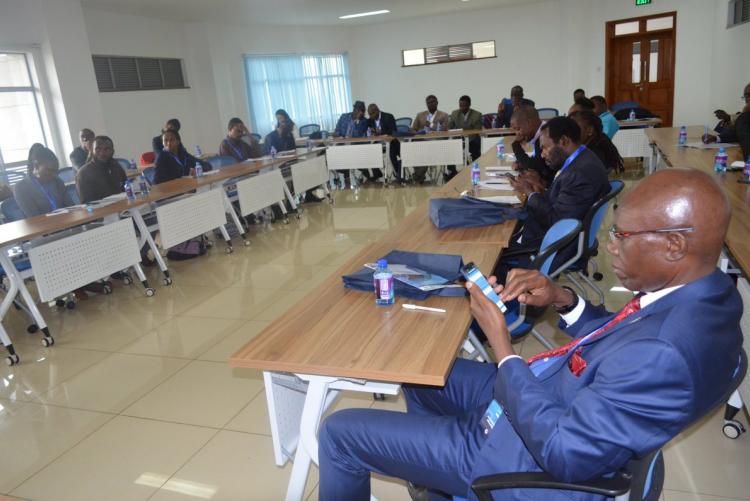The department of political science and public administration hosted a conference on China-African relations where they deliberated on critical issues, explored alternative of doing business and strengthening relations between the Nations. Sino-African relations are a vibrant, two-way dynamic in which both sides adjust to policy initiatives and popular perceptions emanating from the other. China's role in Africa defies conventional stereotypes and punchy news headlines.
China is both a long-established diplomatic partner and a new investor in Africa. Chinese interests on the continent encompass not only natural resources but also issues of trade, security, diplomacy, and soft power. Most analyses of Chinese engagement with African nations focus on what China gets out of these partnerships primarily natural resources and export markets. China has four overarching strategic interests in Africa. First, it wants access to natural resources, particularly oil and gas, China wants political legitimacy, The Chinese government believes that strengthening Sino-African relations helps raise China's international influence. Most African governments express support for Beijing's "One China" policy, a prerequisite for attracting Chinese aid and investment. Finally, China has sought a more constructive role as a contributor to stability in the region, partly to mitigate security-related threats to China's economic interests. African governments look to China to provide political recognition and legitimacy and to contribute to their economic development through aid, investment, infrastructure development, and trade.
China’s Geostrategic Interests in the Indian Ocean Region: Implications for Kenya
On his research, Prof. Fred Opiyo noted that the Indian Ocean has become the centre stage for global transactions. Whoever controls the Indian ocean dominate Asia. The Indian Ocean is an important factor in which Chinese Capital is being displayed. The Indian Ocean has become a strategic hot spot in recent years due to its international shipping lanes, vast energy reserves in littoral states, fisheries resources & fast-growing economies in the IOR.
It is estimated that the sea routes in the Indian Ocean carry 2/3 of the world’s seaborne trade in oil; 50% of the seaborne container traffic & a 1/3 of the world’s seaborne bulk cargo. The IOR is home to some 2.5 billion people, citizens in some of the fast-growing economies in the world with abundant & diverse arable land, significant human resources & technological capacities. The Indian Ocean is also rich in natural resources including 40% of the world’s offshore oil production; fisheries account for 15% of the world’s total & has increased 13-old between 1950 & 2010; rich in strategic & precious mineral resources including nickel, zinc, cobalt, iron, silver, gold, etc
China’s strategic interests in the IOR are largely driven by its desire to protect its sea lines of communication (SLOCs) critical for its energy security & international trade (Brewster, 2014) The String of Pearls entails China’s increased levels of influence along sea routes thro’ investment, port development & diplomatic engagement with the littoral states.
The BRI’s opportunities include the establishment of an open cooperation platform that will serve the common interests of participating countries along the routes. The BRI will bring the benefits of the Chinese development model & Chinese benefits across the globe. China’s technology & infrastructure development thro’ the BRI are likely to benefit countries along the Belt and Road due to Beijing’s advantages in areas such as high-speed trains, nuclear power, high-end equipment, construction materials & production lines. The BRI is also expected to enhance the connectivity of the world especially the countries that will be part of the Initiative.
China’s strategies, policies & actions in the Indian Ocean & IOR have implications for littoral states’ geostrategic interests. As a littoral state, Kenya has the potential to realize its geostrategic interests through effective strategies, policies & engagement with extra-regional powers with massive influence & interests in the IOR. China’s growing presence in the Indian Ocean is expected to have ramification for both littoral states & extra-regional powers like the United States. As a pivotal state in the Eastern African region, Kenya stands to gain by deepening its engagement with China in areas of mutual interests in the Indian Ocean. Key areas of geostrategic importance include security of Kenya’s maritime waters to protect trade routes; development of fisheries; offshore exploration & mining of resources in deep seas; collaboration in the tourism sector; development & maintenance of maritime infrastructure to ensure that Kenya’s position as the gateway of East & Central Africa is guaranteed.

